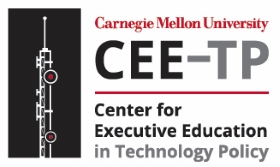Regulations in Today’s Competitive Telecommunications Environment
Instructor: Dr. Marvin Sirbu, Professor, Carnegie Mellon University
This course will focus on the fundamentals of telecommunications and Internet regulatory policy, and how they relate to a competitive and increasingly complex environment. First, it will review the history that led to today’s telecom market and the challenges this poses for regulators. This includes the transition from monopoly PTTs to the competitive provision of services by private operators under independent National Regulatory Authorities and the shift from telephone-based to Internet-based services. Second, the course addresses the issues of independent regulatory agencies, including dominant theories as to why regulation of telecommunications is sometimes necessary, and the various approaches to regulation. This includes comparisons of regulation originating in concepts of common carriage, versus constraint of Significant Market Power; behavioral versus structural regulation; ex ante vs ex post regulation; and licensing of communications service providers. Third, the course addresses economic regulation and antitrust. This includes issues such as the goals of a pricing policy, special economic characteristics of telecommunications, tariff structure, cost allocation, cross subsidy and predation, rate of return and incentive regulation, structural regulation, anticompetitive behaviors, interconnection tariffs, internet economics and network neutrality. How changes in technology can bring valuable new capabilities while pressuring existing regulatory frameworks in unintended and sometimes adverse ways. Fourth, the course discusses how competition creates the need to reimagine universal service. This includes high cost vs low income subscribers, customer subsidies vs network subsidies, evolving levels of universal service, within industry subsidies versus direct appropriations and reverse auctions. Fifth, the course addresses regulation of over-the-top services. This includes discussion of communications vs information services, layered models of regulation, access providers vs edge providers, platforms and aggregators, application to VOIP and VOD, content and conduits, marketplace neutrality, and the role of search algorithms. Finally, the course discusses international institutions in telecom and Internet policy making, including the roles of ISOC, ICANN, IETF and other multistakeholder groups, intergovernmental groups such as the ITU and the GATS Telecom Annex. This course is useful preparation for some of the more specialized courses that CMU will offer.
- This course is intended for people who participate in the process of creating or interpreting regulation and legislation related to telecommunications policy or telecom-related trade policy, whether they do so from inside or outside of government. This includes policies related to cellular, telephone and Internet. The emphasis on fundamental principles in telecom regulatory policy may make the course especially useful to those who have not delved deeply into some of these issues before, but others can also benefit.
- Upon completing the course, participants will have a deeper understanding of fundamental issues that recur again and again in different forms, different times, different nations, and different sectors of the industry.
- No prior knowledge is required. Every participant will bring their own unique expertise and experience to the discussion.
